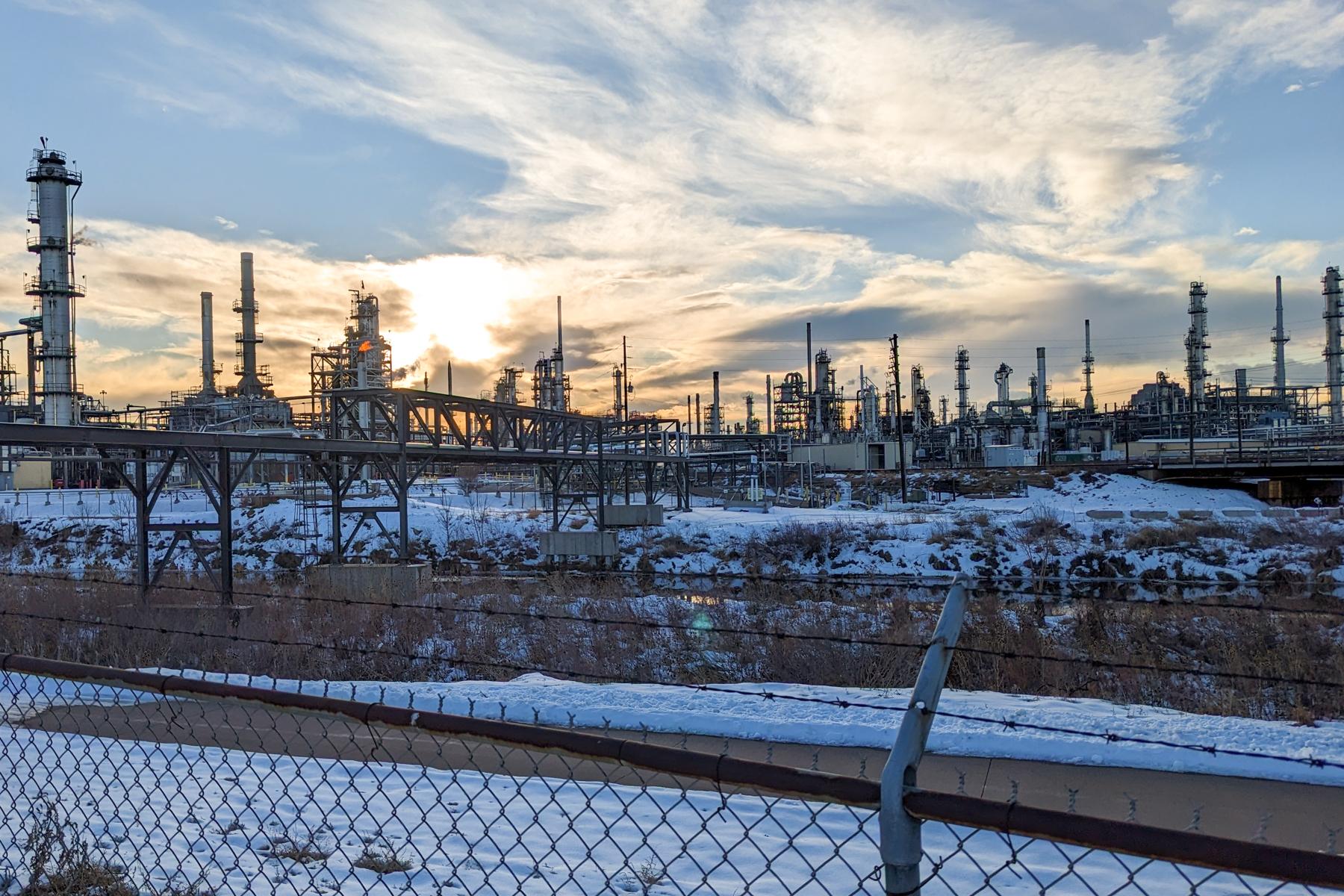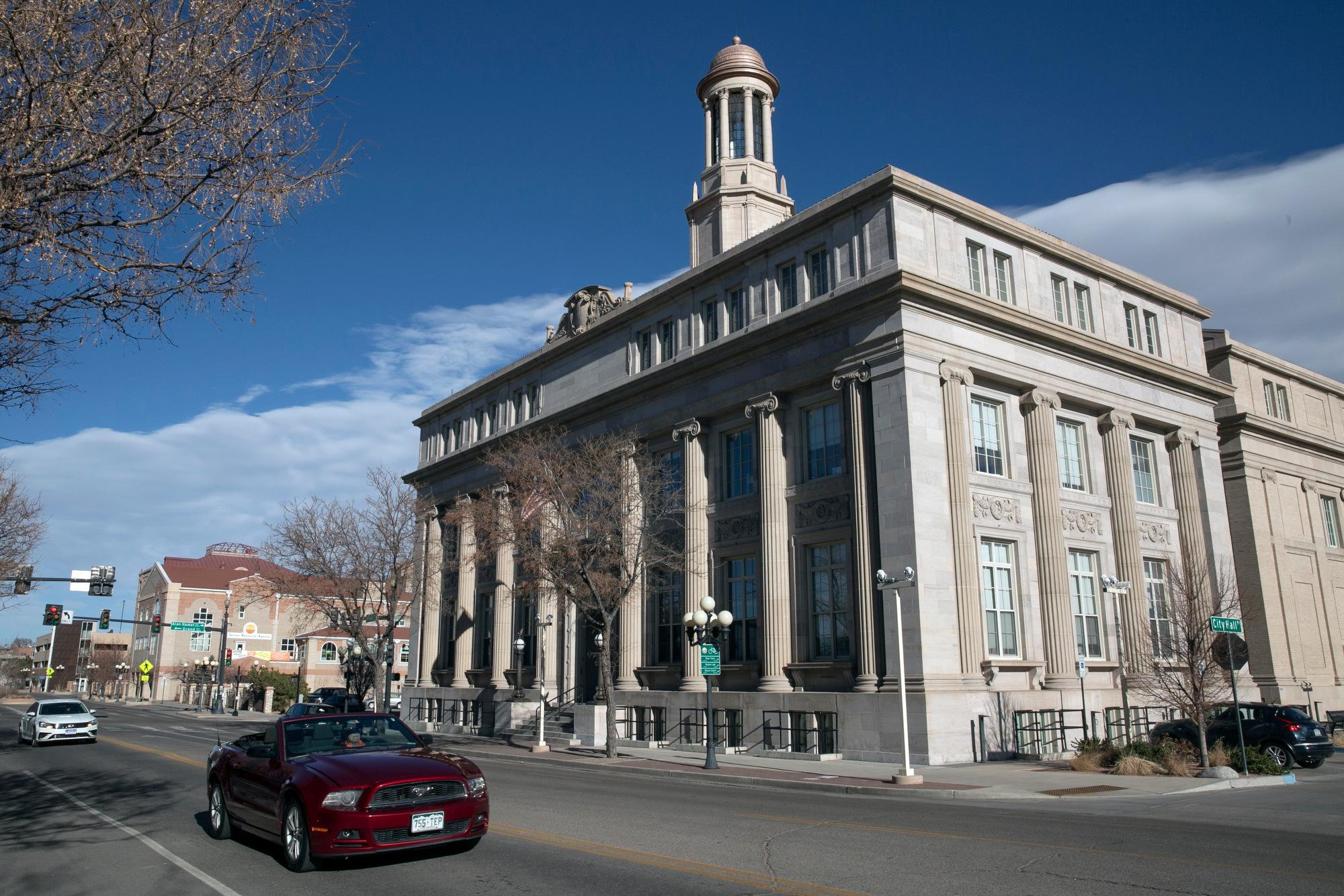
The U.S. Supreme Court declined to weigh in on a significant climate lawsuit brought by Colorado communities Monday, paving the way for a state court to consider whether Exxon Mobil and Suncor Energy should help pay for damages wrought by climate change.
Three local governments — Boulder County, the City of Boulder and San Miguel County—first filed the case in 2018. It argues taxpayers shouldn't be on the hook for the full cost of climate-related disasters — and fossil fuel companies bear some responsibility for the consequences of their products.
Since then, the defendants have tried to push the case into federal court. The latest announcement from the U.S. Supreme Court confirms the opinion of a lower court and the U.S. Solicitor General: the lawsuit is a state matter.
"It means that finally, after five years of fighting over federal versus state court, these cases can now move forward to trial in Colorado state court," said Marco Simons, a lawyer with EarthRights International representing the Colorado communities.
The consequences could extend far outside Colorado
The nation's highest court also decided to stay out of similar cases in Maryland, California, Hawaii and Rhode Island. That means other climate liability suits could now have a more direct path to trial.
The result could be a nationwide reckoning over climate liability. If successful, energy companies could be forced to pay billions of dollars to help cover the cost of floods, droughts, wildfires, rising sea levels and other disasters. Courts could require corporations to reveal more about any efforts to obscure their role in the crisis.
A spokesperson for Suncor Energy declined to comment on the ongoing litigation. Todd Spitler, a spokesperson for Exxon Mobil, said his company will continue to fight the lawsuits, “which are a waste of time and resources and do nothing to address climate change.”
“Today’s decision does not impact our intention to invest billions of dollars to lead the way in a thoughtful energy transition that takes the world to net-zero carbon emissions,” Spitler said.
Boulder county commissioner Ashley Stotlzmann said her community is a case study of the destructive impact of climate disasters. When it first filed the lawsuit, residents were still reeling from the Fourmile Canyon fire in 2010 and extreme flooding in 2013.
Those disasters were previews of a far more destructive climate-related catastrophe. In late 2021, the Marshall fire burned more than 1,000 homes in Boulder County, causing more than $2 billion in property damage and earning the record for the most destructive fire in Colorado history.
"These companies need to pay their fair share to deal with the climate chaos they’ve created and take responsibility for the climate impacts," Stolzmann said in a written statement. "Local governments cannot shoulder the price tag of climate change alone.”
Federal courts have dismissed similar cases, but the lawsuits could have a better shot at the state level.
Simons, the lawyer representing the Colorado communities, said the lawsuit presents similar arguments to successful cases against tobacco and opioid companies. In those instances, state and local governments argued corporations knowingly produced a harmful product and tried to mislead people about its consequences.
Courts ruled those actions amount to a "public nuisance," a broad legal concept for any actions that amount to an unreasonable interference with a public right.
The new wave of climate change lawsuits takes a similar approach to fossil fuel companies. Simons says Suncor Energy and Exxon Mobil knew about the dangers of fossil fuels and, to some extent, concealed information from the public. Those companies are therefore liable for damages.
"They cannot claim they were simply satisfying market demand," Simons says. "In that way, the cases do have some similarity to cases around tobacco and opioids."
Meanwhile, business groups and some legal experts have rushed to push back against the comparison. In a 2018 op-ed, the Denver Post editorial board argued the tobacco industry created a public health crisis with "no redeeming economic value." The climate crisis, on the other hand, has been driven by a widespread desire for fossil fuels, and can't be only the result of deceptive marketing.
What happens next
After the announcement from the U.S. Supreme Court, state courts in Denver and Boulder will now need to consider separate requests to dismiss the case. If those are rejected, a lengthy discovery process would precede any jury trial.
Simons acknowledged that means a final verdict is several years away.
Funding for public media is at stake. Stand up and support what you value today.









